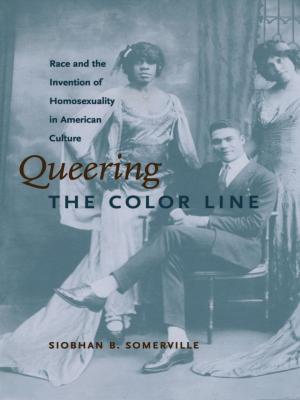With All, and for the Good of All
The Emergence of Popular Nationalism in the Cuban Communities of the United States, 1848–1898
Fiction & Literature, Literary Theory & Criticism, Caribbean & West Indian| Author: | Gerald E. Poyo | ISBN: | 9780822381532 |
| Publisher: | Duke University Press | Publication: | March 28, 1989 |
| Imprint: | Duke University Press Books | Language: | English |
| Author: | Gerald E. Poyo |
| ISBN: | 9780822381532 |
| Publisher: | Duke University Press |
| Publication: | March 28, 1989 |
| Imprint: | Duke University Press Books |
| Language: | English |
Cuban-Americans are beginning to understand their long-standing roots and traditions in the United States that reach back over a century prior to 1959. This is the first book-length confirmation of those beginnings, and its places the Cuban hero and revolutionary thinker José Martí within the political and socioeconomic realities of the Cuban communities in the United States of that era. By clarifying Martí’s relationship with those communities, Gerald E. Poyo provides a detailed portrait of the exile centers and their role in the growth and consolidation of nineteenth-century Cuban nationalism.
Poyo differentiates between the development of nationalist sentiment among liberal elites and popular groups and reveals how these distinct strains influenced the thought and conduct of Martí and the successful Cuban revolution of the 1890s.
Cuban-Americans are beginning to understand their long-standing roots and traditions in the United States that reach back over a century prior to 1959. This is the first book-length confirmation of those beginnings, and its places the Cuban hero and revolutionary thinker José Martí within the political and socioeconomic realities of the Cuban communities in the United States of that era. By clarifying Martí’s relationship with those communities, Gerald E. Poyo provides a detailed portrait of the exile centers and their role in the growth and consolidation of nineteenth-century Cuban nationalism.
Poyo differentiates between the development of nationalist sentiment among liberal elites and popular groups and reveals how these distinct strains influenced the thought and conduct of Martí and the successful Cuban revolution of the 1890s.















